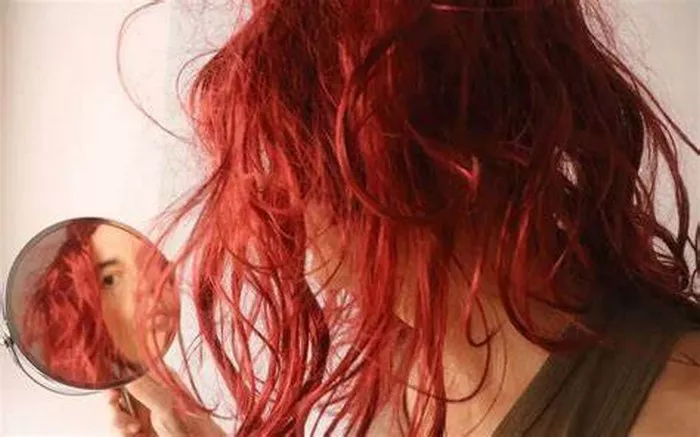Hair dyeing is a common practice that allows individuals to express their personal style, cover gray hairs, or simply change their look. However, many people worry about the potential for hair loss after dyeing their hair. Is it normal to lose hair after dyeing it? This article will delve into the connection between hair dye and hair loss, exploring the causes, preventive measures, and remedies.
Understanding Hair Structure and Growth Cycle
To comprehend why hair dye might cause hair loss, it’s crucial to understand the basic structure and growth cycle of hair.
Hair Structure
Hair is composed of three main layers:
1. Cuticle: The outermost layer, consisting of overlapping cells that protect the inner layers.
2. Cortex: The middle layer, containing melanin which gives hair its color and keratin that provides strength and elasticity.
3. Medulla: The innermost layer, often absent in fine or light-colored hair.
Hair Growth Cycle
The hair growth cycle consists of three phases:
1. Anagen Phase: The growth phase, lasting 2-7 years.
2. Catagen Phase: The transitional phase, lasting about 2-3 weeks.
3. Telogen Phase: The resting phase, lasting about 3 months before hair sheds and new hair begins to grow.
Causes of Hair Loss After Dyeing
Hair dye can cause hair loss for several reasons. Understanding these causes can help in addressing the issue effectively.
Chemical Damage
Hair dyes contain chemicals like ammonia and peroxide, which can weaken the hair shaft, leading to breakage and hair loss. Frequent dyeing can exacerbate this problem, causing cumulative damage to the hair structure.
Allergic Reactions
Some individuals may experience allergic reactions to the chemicals in hair dyes, leading to scalp inflammation, itching, and hair loss. Patch testing before dyeing can help identify potential allergies.
Over-processing
Repeated dyeing, especially with permanent dyes, can strip the hair of its natural oils, leading to dryness, brittleness, and breakage. Over-processing can also disrupt the hair’s natural growth cycle, leading to increased shedding.
Scalp Health
A healthy scalp is essential for healthy hair growth. The chemicals in hair dye can sometimes irritate the scalp, leading to conditions such as dermatitis or infections that can cause hair loss.
Prevention Tips
While it may not be possible to completely prevent hair loss after dyeing, certain measures can minimize the risk and maintain hair health.
Choose High-Quality Products
Opt for high-quality hair dyes with nourishing ingredients. Semi-permanent or natural dyes are less damaging compared to permanent dyes. Look for products that are free from harsh chemicals like ammonia and contain conditioning agents.
Follow Instructions
Always follow the instructions provided with the hair dye. Avoid leaving the dye on for longer than recommended and ensure you rinse thoroughly to remove any residual chemicals.
Patch Test
Perform a patch test before using a new hair dye. Apply a small amount of dye to a discreet area of your skin and wait 24-48 hours to check for any allergic reactions.
See Also: Will Hair Fall Out After Stopping Rogaine?
Limit Frequency
Limit the frequency of dyeing to allow your hair and scalp time to recover. Stretch the time between dyeing sessions to reduce cumulative damage.
Pre-Treatment and Aftercare
Prepare your hair before dyeing by using deep conditioning treatments to strengthen it. After dyeing, use products designed for color-treated hair, including sulfate-free shampoos and conditioners, to maintain moisture and prevent damage.
Remedies for Hair Loss After Dyeing
If you experience hair loss after dyeing, several remedies can help restore hair health and promote regrowth.
Gentle Hair Care
Adopt a gentle hair care routine. Avoid excessive heat styling, brushing wet hair, and using harsh hair products. Use a wide-toothed comb to detangle and minimize breakage.
Scalp Massages
Regular scalp massages can stimulate blood flow to the hair follicles, promoting hair growth. Use natural oils like coconut, jojoba, or argan oil to nourish the scalp and hair.
Balanced Diet
A balanced diet rich in vitamins and minerals is essential for healthy hair growth. Ensure you consume adequate amounts of protein, iron, zinc, and vitamins A, C, D, and E.
Hydration
Keep your hair and scalp hydrated by drinking plenty of water and using hydrating hair products. Dry hair is more prone to breakage and loss.
Avoid Stress
Stress can exacerbate hair loss. Practice stress-relief techniques such as yoga, meditation, or exercise to maintain overall well-being and support hair health.
Medical Treatments
If hair loss persists, consult a healthcare professional. Treatments like minoxidil, low-level laser therapy, or platelet-rich plasma (PRP) therapy can help stimulate hair growth.
When to Seek Professional Help
While some hair loss after dyeing can be normal, excessive or persistent hair loss may indicate an underlying issue. Seek professional help if you notice:
- Sudden or severe hair loss
- Scalp pain, itching, or irritation
- Bald patches or significant thinning
- Hair loss that doesn’t improve with home remedies
A dermatologist or trichologist can diagnose the cause of hair loss and recommend appropriate treatments.
Conclusion
Is it normal to lose hair after dyeing it? While some hair shedding can be expected due to the chemical processes involved, excessive hair loss is not typical and may indicate underlying issues such as chemical damage, allergic reactions, or scalp health problems. By understanding the causes and taking preventive measures, you can enjoy dyed hair without compromising its health. If you do experience hair loss, adopting gentle hair care practices and seeking professional help can aid in restoring your hair’s health and vitality.


